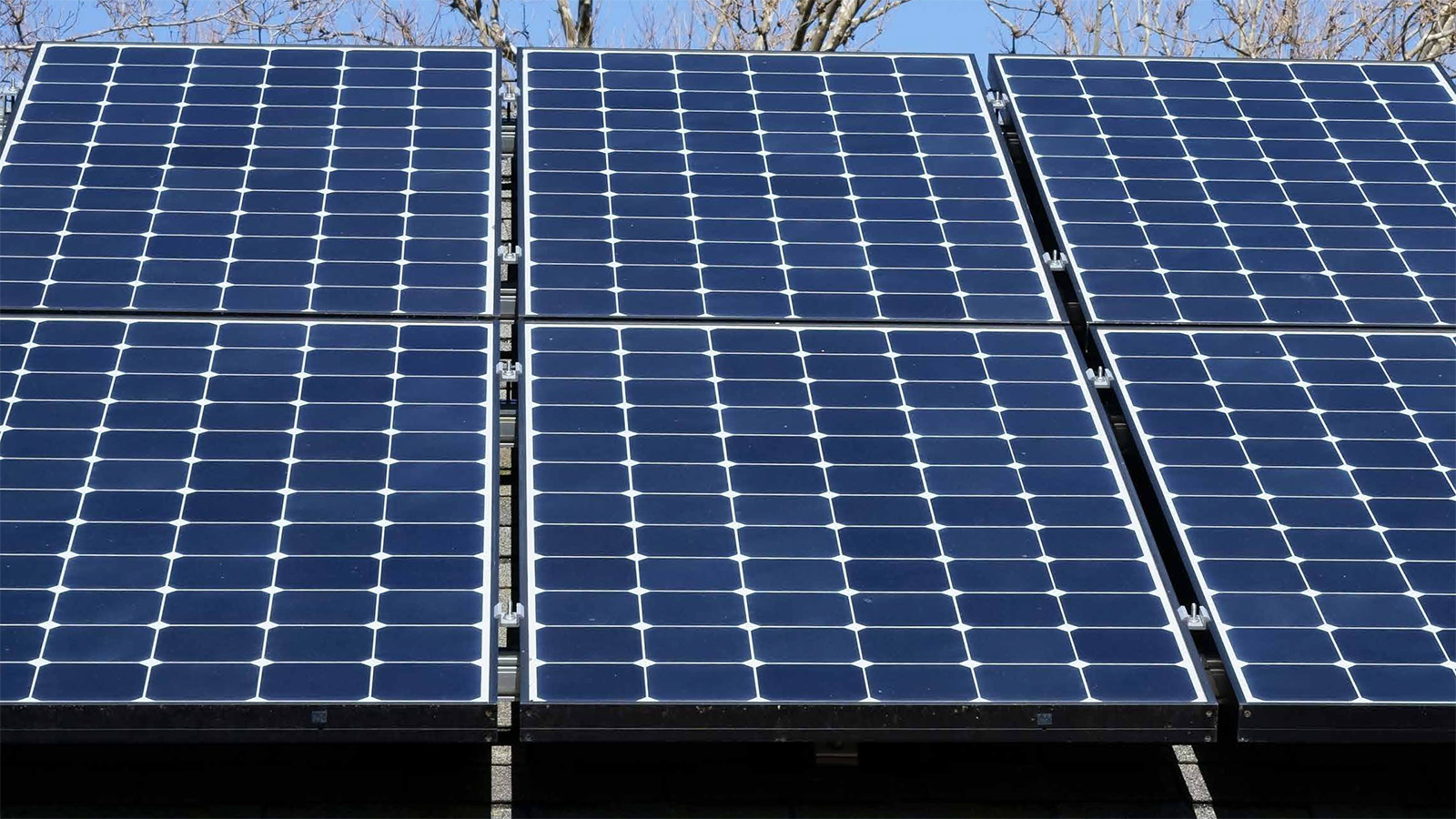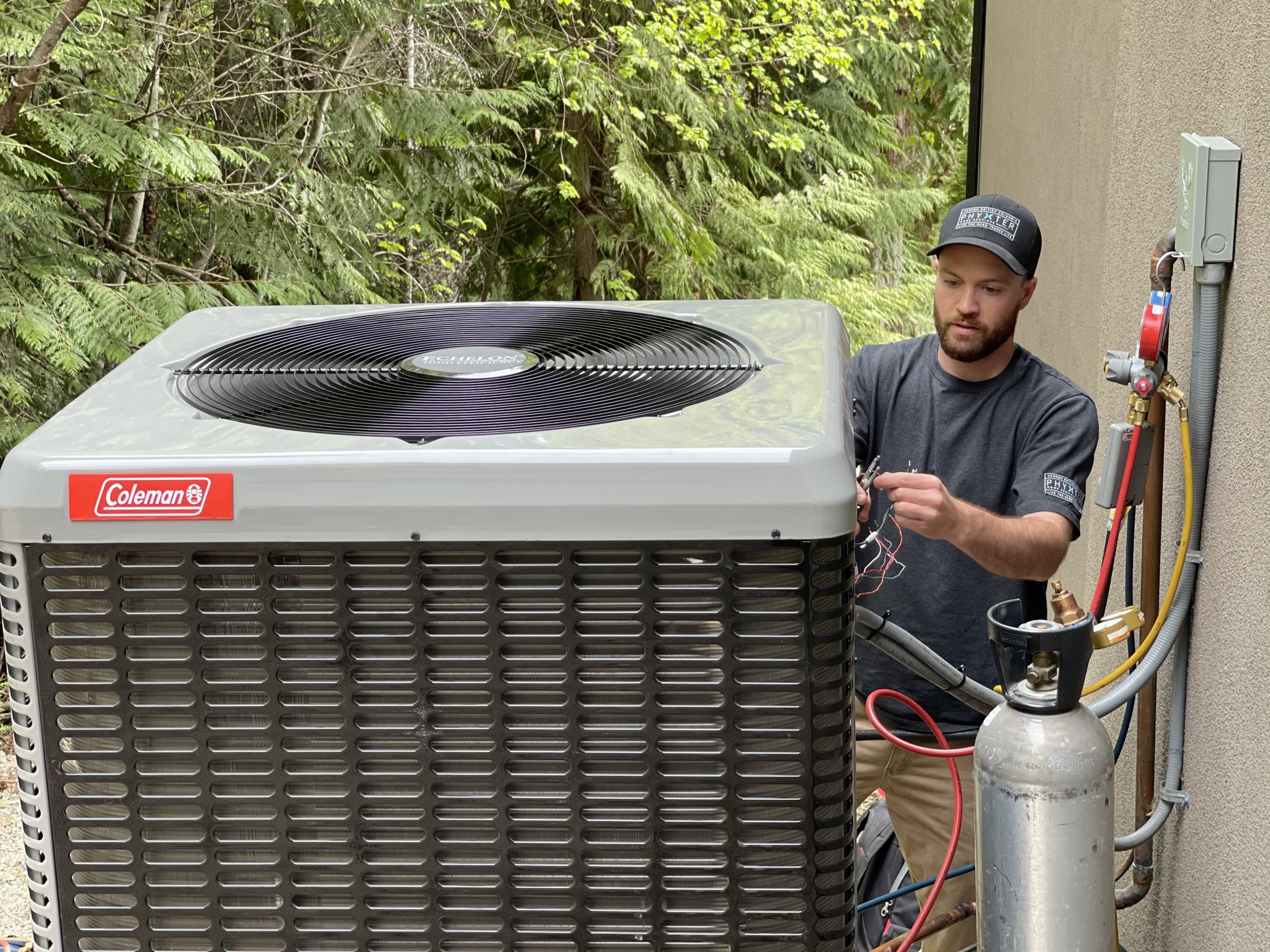
Heat Pumps in Alaska
Webinar and FAQ
Learn more about the technology, tax credits and rebates, and how they work in Alaska's colder climates.
Heat Pumps in Alaska Webinar
Andy Romanoff from Alaska Heat Smart, Dr. Tom Marsik from NREL’s Cold Climate Housing Research Center, and Ethan Stoops from the Alaska Housing Finance Corporation discuss the technology, upcoming rebates, and how heat pumps work in our colder climates.
Federal tax credits and upcoming rebates
Is there an income limit for the Inflation Reduction Act (IRA) tax credits for heat pumps?
There is no income limit for the IRA tax credits- the only qualification required is that you have tax liability.
What does the $2,000 cap on the IRA tax credit mean? If the heat pump costs more than that, can I get it for multiple years?
The federal tax credit won’t cover the entire cost of the heat pump, and will either cover $2,000 or 30% of the cost of the heat pump, whichever is lower, in the year you install it. There is currently nothing to keep local (like the Chugach Heat Pump Pilot Program), state and federal rebates from being stacked, but it’s possible that this could change in the future.There is also a system-level 30% credit for systems with thermal energy storage.
Do all heat pumps and heat pump water heaters qualify for the 30% federal tax credit?
Not necessarily. To qualify for the IRA tax credit, heat pumps and heat pump hot water heaters must meet efficiency requirements, and be in the Consortium for Energy Efficiency’s highest non-”advanced” tier.
Can you still get an IRS credit on a heat pump if your backup is a gas furnace or oil system?
Yes! You can have a non-heat pump backup and still use the credit to purchase a heat pump.
When will the income dependent rebate programs come out?
The Alaska Housing Finance Corporation has been tasked with administering the rebate program in Alaska. The timeline is not official yet. However AHFC anticipates the guidelines from the Department of Energy coming out late summer, and the program being able to launch sometime in the spring of 2024.
What point of sale rebates will be available?
- Households at 80% or less of area median income are eligible for either the full cost of the appliance or 100% of the rebate listed below, whichever is less.
- Households at 80-150% of area median income are eligible for up to 50% of the cost of the appliance or the rebate listed below, whichever is less.
- Households above 150% of the median income won’t be eligible for rebates, but will be eligible for tax credits, see above.
- Home electrification and appliance rebates are capped at $14,000 per household.
- Heat Pump Heating/Cooling $8000
- Heat Pump Water Heaters $1750
- Heat Pump Clothes Dryers $840
- Electric Load Service Center upgrades/Breaker box (this needs to be updated in some homes when more appliances are electric) $4000
- Electric Wiring (this also sometimes needs an update for compatibility with new electric appliances) $2500
- Weatherization: Insulation, Air Sealing, Ventilation (makes your heat pump far more efficient and more viable) $1600
- Electric Stove, Cooktop, Range, and or oven (nothing to do with your heat pump, but goes into your rebate cap) $840
What about the Home Efficiency Rebate Program?
Folks will also be able to receive rebates for improving the overall efficiency of their home, and that can include adding a heat pump.
The largest rebates go to those who’s retrofits lead to energy savings of more than 35%. Low Median Income (LMI) households can get either 80% of their projects covered or a max of $8000. Other households can get 50% covered or a max of $4000.
Rebates are also available to folks whose projects save between 20% and 35%. LMI households can get 80% of costs covered or $4000 and other households can get 50% covered or $2000 max.
These start with an auditor coming to your home to determine which projects will improve your efficiency. There is no income cap on this. If you get a point of sale rebate for your heat pump, it can’t go into your efficiency improvements under this program. These are not point of sale– rebates will be given during the following tax cycle.
Are apartment buildings or duplexes eligible?
Multifamily homes are also eligible for the home efficiency rebates, and the rebates are the same, but multiplied by the number of dwellings.
What is the median area income where I live?
You can use this tool to see what the median area income is where you live.
Where will more information be available when the program goes live?
https://www.ahfc.us/efficiency/programs-for-homeowners/alaska-residential-energy-rebates
https://www.energy.gov/save
Installation costs
What is the difference in price between ducted and ductless heat pump systems?
There is a really large range, and it’s largely dependent on your house. That said, especially if you are switching from oil, these upfront costs can more than pay for themselves in long term savings. Rebates and incentives also help to offset the upfront costs.
How much does it cost to install a heat pump heating and cooling system?
Depending on your home’s size and the climate you live in, the cost to install a heat pump before incentives can range from $6000 to $35,000 (in Alaska). It’s a good idea to get multiple quotes from several contractors to get a complete picture of your options.
How much does it cost to install a heat pump hot water heater?
Depending on the model, your existing hot water heater, and several other factors, installation of a heat pump hot water heater can range from around $1,900 to $3,800.
Operating costs and savings
How do you minimize the impact to your electric bill after switching to a heat pump?
One major way to reduce your electric bill and make sure that your heat pump is running as efficiently as possible is to invest in weatherizing your home and making sure you’re maximizing your home’s efficiency. Another way is to invest in a heat pump system that has a thermal battery or other “load shifting” technology, which can help by running when electricity is cheapest and storing the heat for later use.
How much can I save on my energy bills with a heat pump heating and cooling system?
Heat pumps are about 3-5 times more efficient than most conventional HVAC systems. Depending on the system it’s replacing, annual savings on your energy bill can range quite a bit. Nationally, that range is $100 to $1,300. In Juneau, households are seeing cost savings of about $1700/year. There is a really efficiently built home in Dillingham with a heat pump that has reduced heating bills to just a few hundred dollars per year, which is a very small fraction compared to what other homes in the region are paying.
How much can I save on my energy bills with a heat pump hot water heater?
Heat pump water heaters are 2-3 times more efficient than most conventional hot water systems. However, that efficiency hinges on where you put your water heater. If it’s inside your home, it will rob some of the heat from your home, and savings will be less. If you have a warm garage or other similar space, savings will increase. If you can vent units to the outside, that will also help. On average, you’ll save about $175 to $575 a year in operating costs compared to a conventional hot water heater.
Installation and transition questions
If someone has two gas furnaces heating their home, is it possible to swap out one furnace at a time?
Yes! It is possible to replace one then plan to convert another in the future.
Does a ducted system replace an existing gas furnace?
Typically it can. Most heat pump HVAC systems will leverage existing ducts (not mini splits though).
Is it possible to have a ducted heat pump in one part of the house and a mini split in another? If your existing furnace is set up with multiple zones, can that be retained with a heat pump setup?
Yes, it is possible to have multiple “zones”.
Is it possible to have a ducted and ductless hybrid heat pump system?
Yes, it is possible to have a centrally ducted system supplemented with mini-split heads. This can be a great option for rooms that are especially hot or cold without ducts supplying it.
If someone only has AC ductwork, will it work for a ducted system?
It should, but it depends on the size and condition of the ducts. Heat pumps require a fair bit of airflow and so sometimes require larger ducts than the ones that already exist.
If I have no ducts, what type of heat pump system should I be looking for?
A ductless mini-split system can be a great option for homeowners without any ducts!
What kind of heat pump system might work in a house with an older furnace and radiator that lacks a separate water heater?
Sounds like you might be a good candidate for a mini split system, but you would want a professional to take a closer look at the water heater setup.
Can you have floor based heating and a heat pump?
Yes! There are heat pump systems available for radiant floor heating.
How would a mini-split heat pump system work with radiant heating?
The mini split can be used for cooling and heating in the warmer seasons, then the radiant heating can be used through the coldest months of winter.
Can you compensate for a drafty house with a higher capacity heat pump?
You can size the heat pump for the larger load, but usually the best investment is to improve the level of insulation and efficiency of your home with weatherization and building envelope improvement.
Questions about electric and grid issues
What is the minimum electricity service needed for a central ducted heat pump system?
This depends on the system used and the needs and the size of the home. Usually a heat pump will require between a 30 and 60 amp circuit, but heat pumps can often be installed in homes with only 100 amp circuits. Many ductless systems only require a 20 amp circuit.
How do you decide whether you need backup from a non-electric source?
This depends on the BTU rating of your heat pump and how cold it gets in your area. With current technology, most places in Alaska will likely want a back up heat system in place. The technology is improving quickly though, so this will likely change in the coming years.
What happens to heat pumps during a power outage?
While our utilities pride themselves on providing power during all types of weather, it’s a fact of life that sometimes the power does go out. For better or worse, a heat pump is just like a gas-powered furnace or boiler. All require electricity to operate (this surprises many homeowners, but your furnace and boiler also require electricity to provide heat!). If you live in an area that is prone to frequent power outages, going “off the grid” with solar and battery storage might be a compelling option for you. And soon, you may also be able to power your home via your EV!
Installation location questions
Are heat pumps good for houses of all sizes?
There are lots of different heat pump sizes that can cover a whole range of home sizes and environments
Can you install a heat pump on a roof, under a house, in a mobile home?
Yes! Heat pumps can be installed in all of these spaces.
Can a ducted heat pump be installed in a crawl space?
It depends on the size of the crawl space, but it’s definitely possible!
Should you do lead based paint testing of walls where a ductless heat pump would be installed?
It’s absolutely a good idea to get tested for lead paint if you have any concerns or suspicions.
Heat pump water heaters
Are heat pump water heaters more or less efficient than an electric tankless water heater?
Heat pump water heaters are the most efficient way to heat water, but the tradeoff is that they heat water slightly slower and they do expel cold air.
How common is it to install a heat pump HVAC system and water heater together?
It’s very common to upgrade a heat pump and water heater in one go!
I have a tankless gas water heater, with no room for a tank. Can I switch to a tankless heat pump water heater?
No, heat pump water heaters all have tanks.
What applications are recommended for air to water heat pumps?
Air to water heat pumps work very well in a wide range of climates. Harvest Thermal uses a high efficiency heat pump water heater that is cold climate compatible, providing the same output down to 4 degrees Fahrenheit – and other cold climate heat pumps would also work well. You’ll want to have a discussion with your contractor if you live in a part of the state that regularly gets colder than 4 degrees.
Can heat pump water heaters collect heat from outdoors rather than from their immediate surroundings?
Yes, you can add ducting to them that allows them to pull air from the outside and then expel the cold air to the outside. It’s a great option for some climates.
General heat pump questions
How noisy are heat pumps? What is the noise level of the outside compressor and inside units of a heat pump?
It varies a lot. Some heat pumps are super quiet (37 dB peak). Others can be noisier (60-70 dB peak). You should include noise in the criteria that you specify to the contractor. Oftentimes the most important thing is to make sure your heat pump isn’t placed in a spot where all of the sound will be amplified.
How does one control the heat from the heat pump?
Heating and cooling is either regulated by a remote or a typical thermostat. The process of changing temperature is a little slower though, so you’ll likely not adjust as much at night or when you’re out for the day.
Can you turn on a heat pump system remotely?
Depending on your contractor, many will install technology that allows you to monitor and control the system from your phone.
What should I be looking for in a specific heat pump model or company?
One big thing that’s important to look at when making any big purchase is the warranty- the length of it and what it covers. EnergyStar, the Northeast Energy Efficiency Project, and Consumer Reports both offer resources that give more information about different heat pump brands and models. However, for the most part, the important things are making sure that you’re getting the heat pump that’s right for your home and climate, which is something you’ll want a trustworthy contractor’s help with.
How long do heat pumps typically last?
Heat pumps usually last 10-15 years, but well-maintained ones can last up to 20-25 years.
Parts of Alaska get very cold. How well do heat pumps work in my particular climate?
There are brands of heat pumps that are able to maintain 100% of their efficiency down to -5F. However, in some of the colder parts of the state, efficiency will be a little more dependent on your specific home. You can use this tool to find out more about whether heat pumps will be an efficient choice for your household with the current technology: https://heatpump.analysisnorth.com. Heat pump technology for really cold climates is also rapidly improving, so if you’re in a location and household that isn’t quite right today, that will very likely change in the next couple of years. Geothermal might also be a good choice for your climate.
Are the liquids that heat pumps use toxic, or dangerous to the environment in any way?
The refrigerants are indeed pretty impactful to the climate if released into the environment uncontrolled manner (which is against EPA regulations). HVAC professionals go through a lot of training and have strict regulations about recovering refrigerants and then returning them to a facility that can recondition the refrigerants to be reused.
What is the difference between air-source, water-source, and geothermal heat pumps?
Air-source heat pumps, which can be ducted or ductless, transfer heat between environments, moving heat in and out of buildings to regulate the temperature. Ground or water source heat pumps, also called geothermal heat pumps, work the same way, but use the temperature differential from the Earth to heat or cool your home rather than the surrounding air. Air-source heat pumps are more common and have a lower upfront cost than geothermal heat pumps, however, geothermal heat pumps do have a lower operating cost and might be more appropriate for certain locations.
What about renters? How could I discuss heat pump installation with a management company?
One way to encourage your landlord or management company to invest in a heat pump or heat pump hot water heater might be to point out that while there is an upfront cost, over time, they’ll be saving money on the property’s electric bill if they’re paying for utilities, and if you and other renters are paying for utilities, a lower heating and cooling bill makes a home more attractive to potential tenants. Another thing to consider is the incentives available to make it easier to electrify heating and cooling and hot water heaters.
Finding a contractor
How do I find a good contractor to install a heat pump system?
When talking to a contractor, it’s good to ask if they have installed a heat pump before, if they have a customer reference, and if they have knowledge of concepts like energy efficiency and air sealing. It’s also good to check their license and see how long they’ve been operating.
Alaska Heat Smart is working on developing a contractor database, and can likely help point you to a contractor in your service area. AHFC also plans to have a list of contractors once their IRA program goes live.
In many parts of Alaska, there is a fairly long wait for a contractor, so it can be worthwhile to start planning well in advance. If you live in a more remote location and don’t have a local contractor, coordinating with your community to have a contractor install heat pumps in several homes in one trip will help reduce shipping and travel costs.
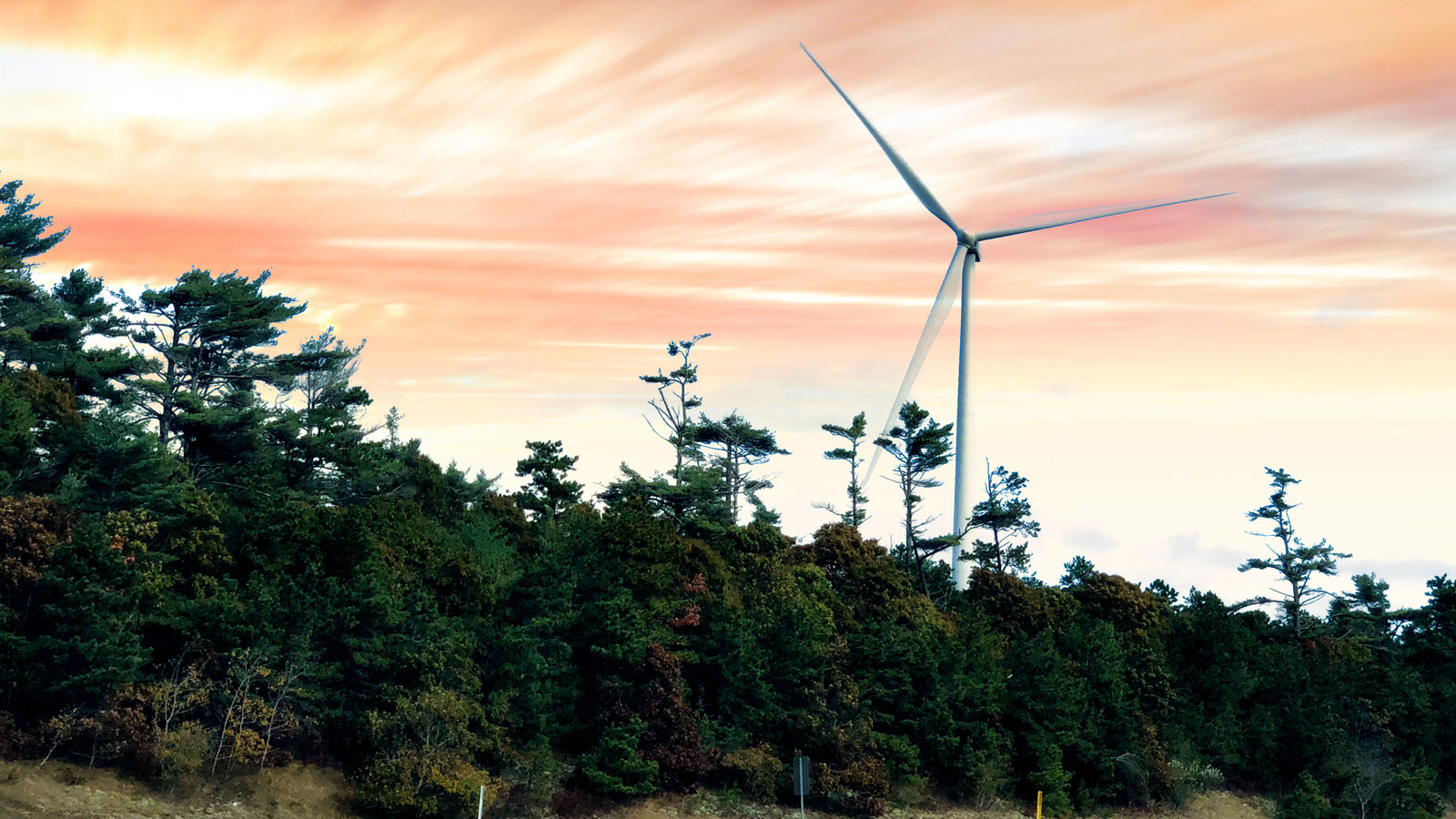
Ask your state lawmakers to support a renewable energy portfolio standard
Ask your lawmakers to ensure that electric utilities add more renewable energy into their mix.
Topics
Authors
Dyani Chapman
State Director, Alaska Environment Research & Policy Center
Dyani runs campaigns to promote clean air, clean water, and open spaces in Alaska. She lives in Anchorage and loves to hike, ski and cook yummy food.
Johanna Neumann
Senior Director, Campaign for 100% Renewable Energy, Environment America
Johanna directs strategy and staff for Environment America's energy campaigns at the local, state and national level. In her prior positions, she led the campaign to ban smoking in all Maryland workplaces, helped stop the construction of a new nuclear reactor on the shores of the Chesapeake Bay and helped build the support necessary to pass the EmPOWER Maryland Act, which set a goal of reducing the state’s per capita electricity use by 15 percent. She also currently serves on the board of Community Action Works. Johanna lives in Amherst, Massachusetts, with her family, where she enjoys growing dahlias, biking and the occasional game of goaltimate.
Find Out More
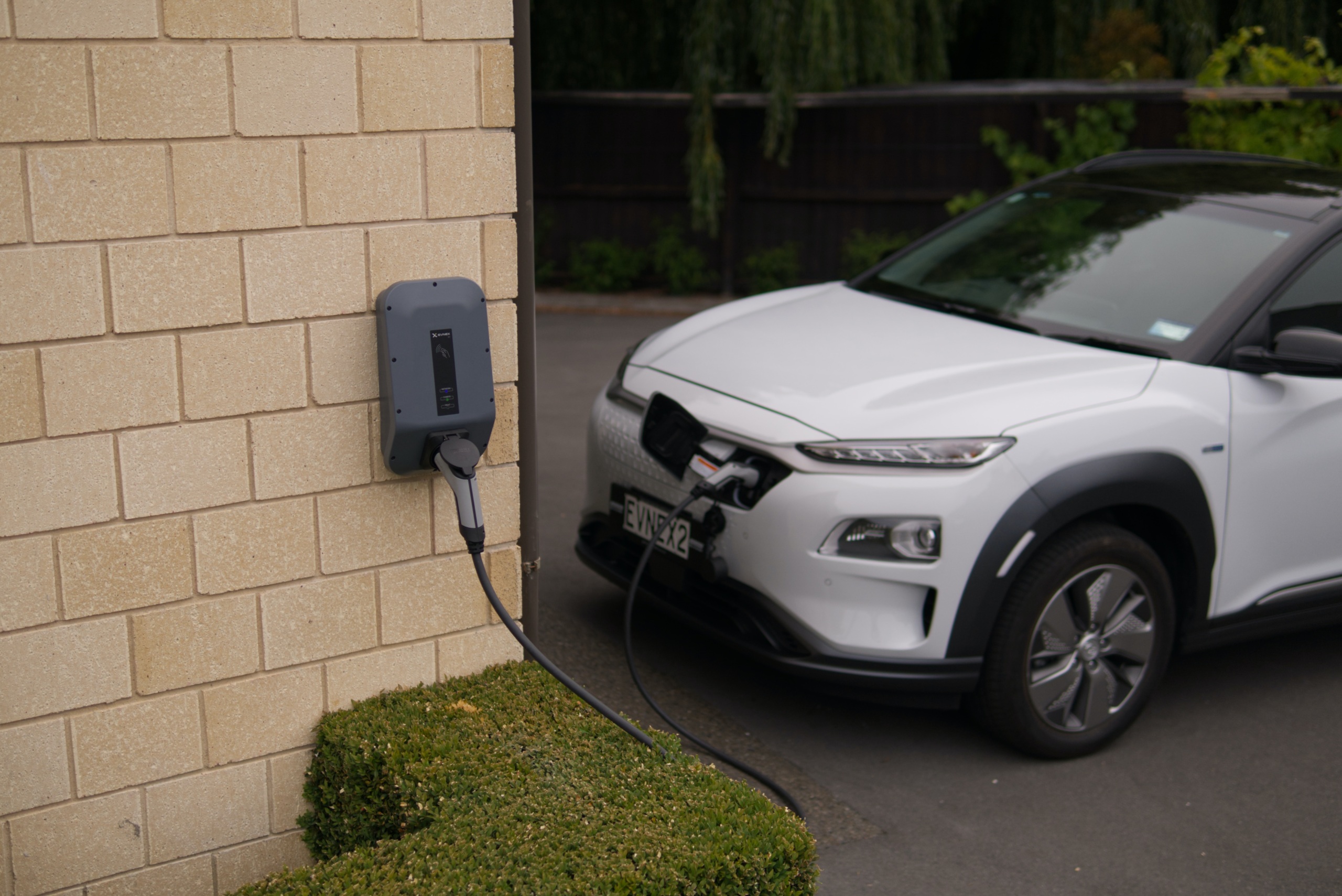
Home EV chargers: How federal tax credits can help you install one
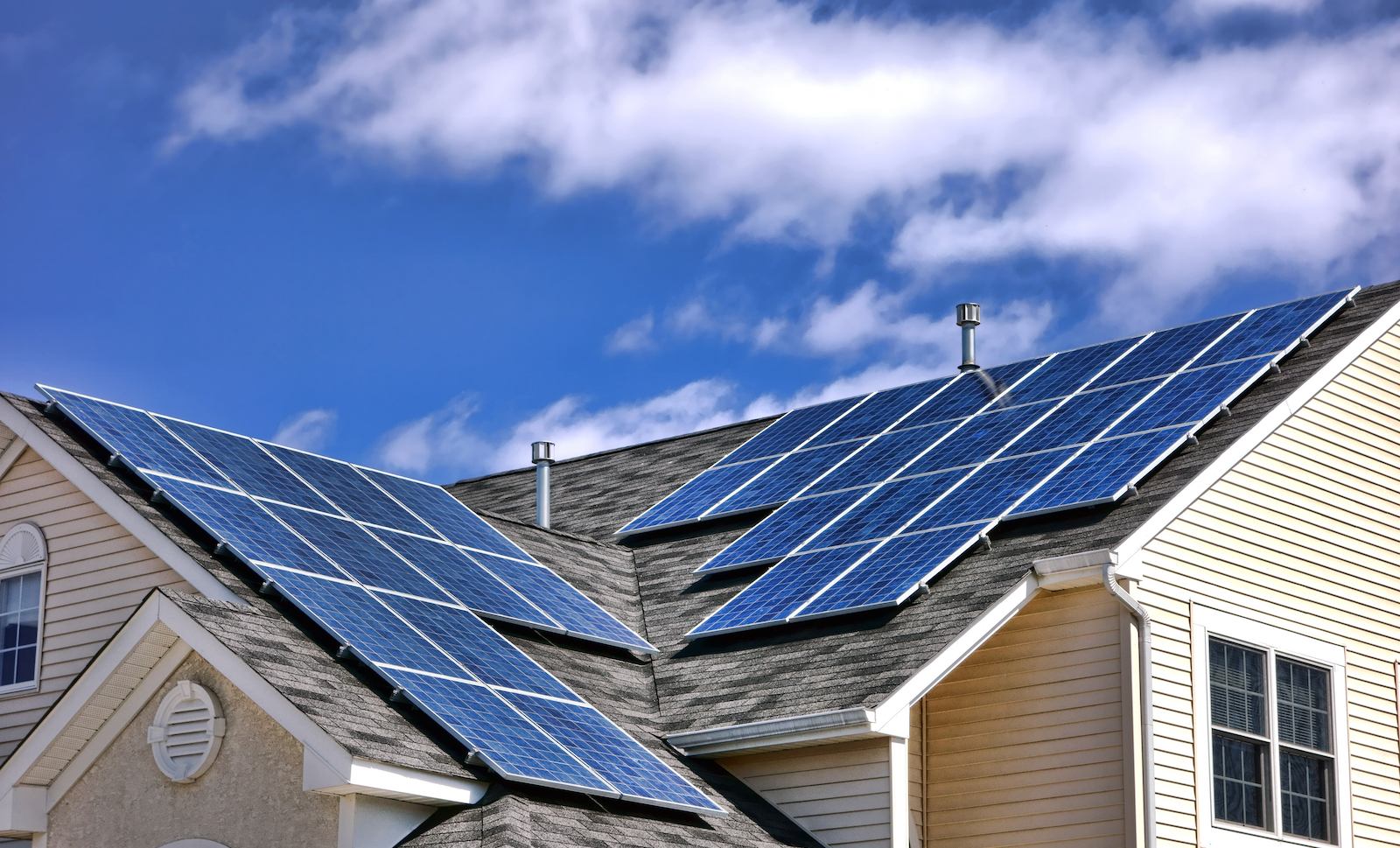
Solar panels: How federal tax credits can help you pay for them

Recording of Rooftop Solar on the Rise webinar
